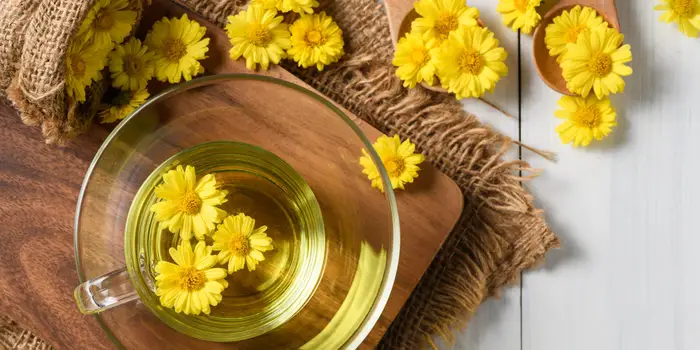Nature has always been the best pharmacy for healing, detoxifying, and nourishing the body. Among the many wild herbs that grow around us, the dandelion plant in pakistan is an underrated treasure. While often dismissed as a common weed, the dandelion is a medicinal powerhouse—particularly its leaves and roots, which are used to make dandelion tea.
In this blog post, we’ll explore the surprising benefits of dandelion tea, the traditional and modern uses of the dandelion plant in Pakistan, how to harvest and prepare your own tea, and why this humble plant deserves a spot in your daily wellness routine.
Table of Contents
What Is the Dandelion Plant?
The dandelion plant (Taraxacum officinale) is a flowering herbaceous plant that belongs to the Asteraceae family. It is characterized by its bright yellow flowers, jagged leaves, and fluffy seed heads that scatter in the wind.
In Pakistan, the dandelion grows abundantly in mountainous regions like Murree, Swat, and the northern areas. Due to its resilient nature, it thrives in temperate climates and often appears in gardens, fields, and even cracks in sidewalks.
Although it might seem like an unremarkable weed, every part of the plant—the roots, leaves, and flowers—has nutritional and medicinal value.
Dandelion Plant in Pakistan: A Forgotten Herb
The dandelion plant in Pakistan is not as well known or utilized as it is in other herbal medicine traditions like Chinese or European naturopathy. In rural areas, however, some traditional hakeems (herbal medicine practitioners) do recognize its health benefits. It’s commonly known by local names like Dhoodhal or Kharpankh in various regions of Punjab and Khyber Pakhtunkhwa.
Unfortunately, urban populations often overlook the plant or treat it as an unwanted weed. Yet, with the rising interest in herbal remedies, people are beginning to rediscover the immense potential of local plants like dandelion.
Health Benefits of Dandelion Tea
Dandelion tea is made from either the dried leaves or roots of the plant—or a combination of both. It has a slightly bitter, earthy taste that resembles chicory and can be sweetened with honey or flavored with lemon.
Here are some scientifically-backed health benefits of dandelion tea:
1. Supports Liver Function
Dandelion root is traditionally used to detoxify the liver. It stimulates bile production, which helps in the digestion of fats and removal of toxins from the body.
2. Aids Digestion
Drinking dandelion tea before meals can stimulate appetite and aid digestion. It also helps reduce bloating and constipation.
3. Natural Diuretic
The tea acts as a gentle diuretic, helping to flush out excess fluid from the body and reduce water retention. This makes it useful for managing blood pressure and promoting kidney health.
4. Rich in Antioxidants
The dandelion plant is packed with antioxidants like beta-carotene, polyphenols, and flavonoids, which fight inflammation and oxidative stress.
5. Supports Blood Sugar Control
Emerging research suggests that compounds in dandelion may help regulate blood sugar and improve insulin sensitivity, making it potentially beneficial for diabetics.
6. Anti-Cancer Potential
Preliminary studies have shown that dandelion root extract may induce apoptosis (cell death) in cancer cells without affecting healthy cells—though more human research is needed.
How to Harvest the Dandelion Plant in Pakistan
If you’re lucky enough to live in a region where the dandelion plant in Pakistan grows naturally, you can harvest it yourself.
Tips for Harvesting:
- Choose clean areas: Avoid roadsides or polluted areas.
- Pick young leaves: They are less bitter and better for tea.
- Dig up roots in fall or spring: That’s when the plant’s medicinal compounds are most concentrated.
- Dry the parts naturally: Spread them in a shady, well-ventilated area for a few days.
How to Make Dandelion Tea at Home
There are two main types of dandelion tea: leaf tea and root tea. Here’s how you can prepare both:
Dandelion Leaf Tea:
- Rinse and chop a handful of dried dandelion leaves.
- Boil water and pour it over 1–2 teaspoons of the dried leaves.
- Steep for 5–10 minutes.
- Strain and enjoy with honey or lemon.
Dandelion Root Tea:
- Wash and chop dried dandelion root.
- Roast in a dry pan for a nuttier flavor (optional).
- Simmer 1–2 teaspoons in a cup of water for 10–15 minutes.
- Strain and serve.
Where to Find Dandelion Tea in Pakistan
If foraging isn’t possible, you can buy dandelion tea in health stores or online herbal shops in Pakistan. Brands like Nature’s Roots, Sufi’s Organic, and even international ones offer organic dandelion tea, both in loose form and tea bags.
When buying, ensure the product is labeled as:
- 100% organic
- Free of additives or preservatives
- Ideally sourced locally
Precautions and Side Effects
While dandelion tea is generally safe, there are a few things to keep in mind:
- Avoid if you’re allergic to plants in the daisy family (ragweed, marigold, etc.).
- Consult your doctor if you’re taking diuretics or blood pressure medications.
- May cause acid reflux or stomach discomfort in sensitive individuals.
Pregnant and breastfeeding women should consult their healthcare provider before consuming herbal teas.
The Future of the Dandelion Plant in Pakistan
As global awareness about holistic health grows, the dandelion plant in Pakistan has the potential to become a staple in both wellness products and herbal treatments. With more research, education, and sustainable harvesting practices, this humble herb could be transformed from a “weed” into a valuable national botanical asset.
Farmers and herbal entrepreneurs can also benefit by cultivating dandelion organically, especially in Pakistan’s northern regions, where the climate is ideal for its growth. This could open up new avenues for local herbal tea production and export.
Final Thoughts
The dandelion plant in Pakistan is a remarkable natural remedy hiding in plain sight. With its detoxifying properties, antioxidant-rich profile, and traditional uses, dandelion tea is more than just a herbal drink—it’s a wellness ritual.
By incorporating dandelion tea into your daily routine, you’re not only benefiting your health but also reconnecting with the natural heritage of Pakistan’s medicinal flora.
Next time you see those yellow flowers in a field, remember: that’s not a weed—it’s wellness waiting to happen.



